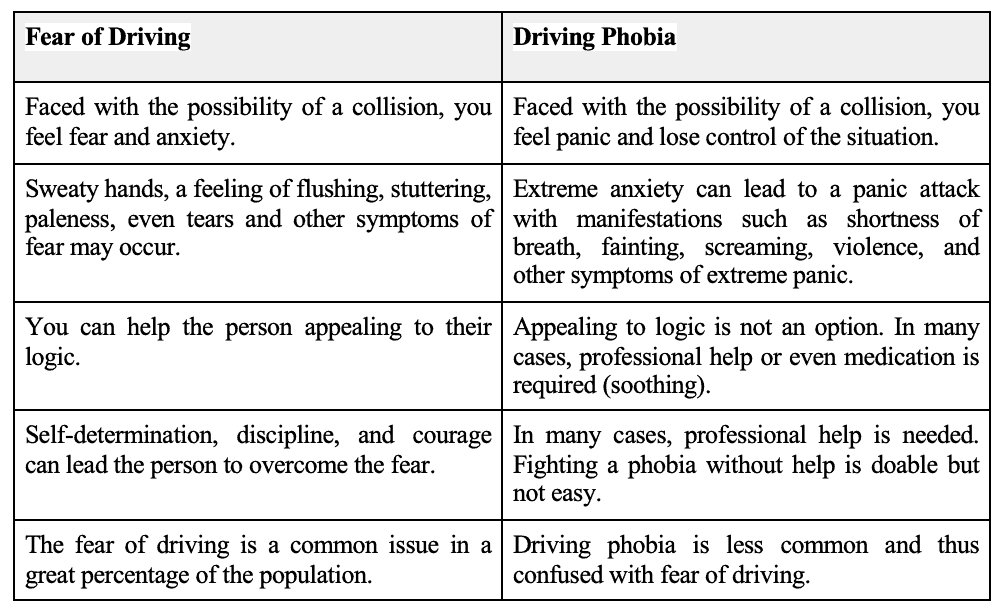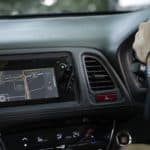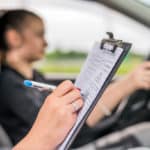According to the Merriam-Webster dictionary, the word “fear” means an unpleasant often strong emotion caused by anticipation or awareness of danger. Let’s start pointing out that like any other emotion fear power should not be underestimated. However, it is also crucial to clarify that there is a difference between “fear of driving” and a condition known as “driving phobia”. Since many people believe they are the same thing, it is important knowing that phobias are anxiety disorders involving fear or anxiety that is excessive or out of proportion to the object or situation.
The objective of this article is helping you to overcome your fear of driving as well as giving you some tips regarding driving phobia, so read on: 
1. Fear vs. Phobia
The article began by defining what is “fear” and “phobias” for a reason. The first step in this process is discovering if you have “fear of driving” or instead you have “driving phobia”. Without diving into psychological terms, let’s oversimplify the difference between both conditions saying that “driving phobia” is a severe type of “fear of driving” that sometimes requires professional therapy.
How can you tell if you have a phobia or just fear? For now, just concentrate on analyzing your feelings regarding what is common to both conditions: fear.
2. Accepting The Fear
Acknowledging the fear is of utmost importance if you plan fighting it. Denying what you feel won’t help you, will only make things harder. Think of people with alcohol or drugs problems. Everything you have read, hear, and saw in the movies is true. You really need to accept your fear of driving.
3. Confronting Fear
So you accepted your fear, good for you. Now comes something a bit harder, fighting it. Start by rationalizing your worries. Understanding what triggers fear is invaluable in order to defeat it because you can focus directly on the cause.
4. Fear of Traffic Accidents
The concern of a potential collision is hands down the most common cause of fear. This is completely understandable since fear is acting as a self-preservation mechanism. A solution to overcome the initial fear of driving is taking a good driver’s training course. An alternative is taking the wheel in an empty parking lot or a similar location that makes you feel safe, without external pressure from other drivers, traffic lights, pedestrians, etc. The logic behind both approaches is the same. The more you drive, the more confident you become about your abilities.
Driving is a skill, and as any skill needs practice. Once you gain enough confidence is advisable taking a defensive driving course. Defensive driving will provide you with an extra layer of confidence while driving which is crucial to defeating any trace of fear you may still have.
5. Fear of being criticized
It’s not uncommon feeling fear of rejection. Human beings strive for others acceptance all the time. Your mind may be blocked because of the person teaching you driving. A cousin? A parent? A friend? There is nothing wrong with that. But, if the person is teaching you don’t count with the necessary patience then it could quickly become a real problem. Fear of being criticized vary depending on your self-esteem. If you have a low self-steam and on top of that your teacher criticizes your driving, then the obvious result is a rejection to continue driving.
The solution? Choose wisely your mentor. This applies to driver’s training courses too. Have the courage to take control of your decision of learning how to drive.
6. Fear of driving outside your comfort zone
This is also a common fear amongst many drivers (even experienced ones). Let’s say that your driving experience is limited to taking your kids at school, buying groceries at the local store, refueling at the gas station, visiting the mall, and driving to work and back home. No matter if the distances are near or far. You feel comfortable driving to those places because you know exactly how to get there, you know by memory each street, avenue, traffic light, and stop signal. You feel safe because you know you are in control of the situation. But what happens if someone asks you to drive to another location?
A normal reaction in many drivers is starting making excuses to avoid leaving their comfort zone. The question here is, are you fear of driving? If you think about it that wouldn’t be rational. Why? Because you already drive. You have the skill. What is the problem then? What you really fear is the unknown.
The solution is simple. Take your time to relax. Use your phone or tablet and find a map of the place you need to drive to. Train your mind to rationalize the situation. It’s just another place. Nowadays you can even see pictures of the streets or take a “virtual tour” to the destination. Identify your fear and smash it with information. You will be amazed at the results. As a motivational reinforcement ask someone to go with you, at least the first time.
7. Fear of nighttime driving
Most car accidents occur at night. That’s a fact. From that perspective having a fear of driving at nighttime is not a surprise. How can you fight that fear? You can start by using better headlight bulbs. LED headlights are far better than traditional halogen or HID bulbs. A clear vision during nighttime helps in building up confidence. Another tip is (again) asking someone to go with you. An extra pair of eyes comes handy at night from a purely rational perspective. But also boost confidence since your mind knows you not “alone”.
8. Fear of past experiences
Managing a traumatic experience, like a car accident, is always something difficult. No matter if you were the driver or the passenger, psychological wounds remain. This one of the hardest fears to confront. Depending on the type of accident, whether there were injuries or worse, fatal victims, you may need professional help. As any other fear, the best approach is taking action and confronting what you dread, in this case driving.
9. Anxiety disorders
Up to now, the focus has been fear and how to fight it. But we have to remember that in some cases the problem is not fear of driving but a “driving phobia”. As said earlier, phobias are anxiety disorders. You can tell the difference between the “normal anxiety” caused by the fear of driving and the “extreme anxiety” of the driving phobia by analyzing the following behaviors:
You can’t defeat anxiety, just because you are not in control of the external elements that produce it. What you can do is learning how to manage anxiety proficiently. Depending on the severity of your anxiety, you can use meditation, relaxation methods, and even medication. One factor to keep in mind is the need of looking for help. You are not alone.



